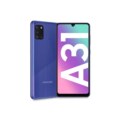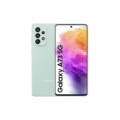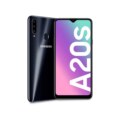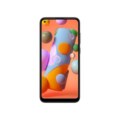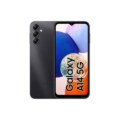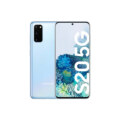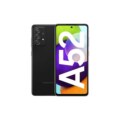Samsung Galaxy Note 20 Ultra


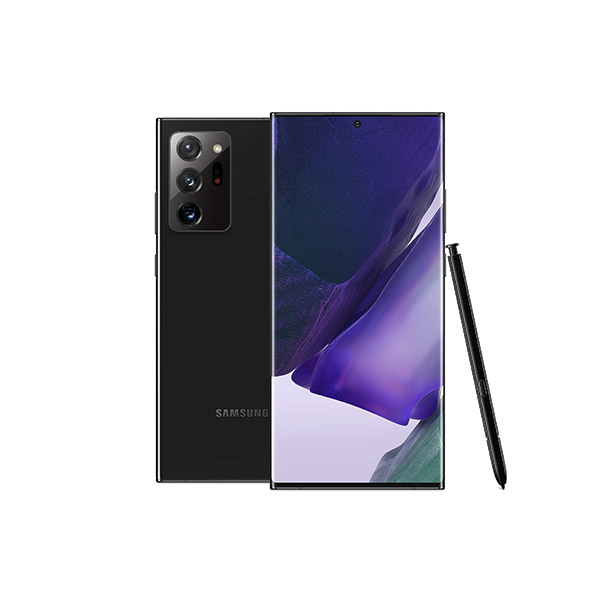

Specs
General
| Device Type | Smart Phone |
| Model | SM-N985F, SM-N985F/DS |
| Announced | 05 August, 2020 |
| Released | 21 August, 2020 |
| Status | Available |
Design
| Water Resistant | IP68 dust/water proof (up to 1.5m for 30 mins) |
| Dimensions | 164.8 x 77.2 x 8.1 mm |
| Weight | 208 g |
| Protection |
Glass front (Gorilla Glass Victus) glass back (Gorilla Glass Victus) stainless steel frame |
| Colors |
Mystic Bronze Mystic Black Mystic White |
Display
| Refresh Rate | 120 Hz |
| Display Type Display Technology => A number of display technologies and types used in mobile phones => TFT (Thin Film Transistor), IPS (In-Place Switching), OLED (Organic Light Emitting Diode), AMOLED (Active-Matrix Organic Light-Emitting Diode), Super AMOLED (an even advanced version of AMOLED), Resistive Touchscreen (Resistive touchscreens contain two layer of conductive material with a very small gap between them which acts as a resistance), Capacitive Touchsceen (Capacitive touchscreen technology consists of a layer of glass coated with a transparent conductor) | Dynamic AMOLED |
| Size | 6.9 inches (17.53 cm) |
| Resolution | 1440x3088 px (QHD+) |
| Display Colors Display Colors is refers to the number of different shades of colors that the screen is capable of displaying => 64K colors, 256K colors and 16 million colors, Obviously 16M is highest available range of colors and better than others. | 16M colors |
| Pixel Density Pixel Density (PPI) is refers to the concentration of pixels on a particular display, measured in pixels per inch (ppi). Pixel density is calculated by dividing the diagonal pixel resolution of a display by its diagonal size, higher pixel density better display quality. | 494 ppi |
| Touch Screen | Yes, Capacitive Touchscreen, Multi-touch |
| Display Protection Display Protection => Gorilla Glass is a special alkali-aluminosilicate glass shield with exceptional damage resistance that helps protect mobile displays from scratches, drops, and bumps of everyday use, It is always better to go for a smartphone with Gorilla Glass for that added protection and peace of mind. | Corning Gorilla Glass Victus |
| Features |
HDR10+ Always-on display |
Camera
| Front Camera | 10 MP, f/2.2, 26mm (wide), 1/3.2", 1.22µm, dual pixel PDAF |
| Camera Setup | Triple |
| Main Camera Camera is able to capture photographs and usually videos, The most important characteristics of a camera are the resolution (measured in megapixels), lens focus type (fixed or automatic), higher megapixel cameras are known to capture higher quality photos, but not always a good measurement of the photos quality. |
108 MP, f/1.8, 26mm (wide), 1/1.33", PDAF, Laser AF, OIS 12 MP, f/3.0, 103mm (periscope telephoto), PDAF, OIS, 5x optical zoom, 50x hybrid zoom 12 MP, f/2.2, 13mm (ultrawide), 1/2.55", PDAF, Super Steady video |
| Image | 12000 x 9000 Pixels |
| Video | 8K@24fps, 4K@30/60fps, 1080p@30/60/240fps, 720p@960fps, HDR10+, stereo sound rec., gyro-EIS & OIS |
| Camera Features | Geo-tagging, touch focus, face/smile detection, Auto HDR, panorama |
| Flash Flash Light => There is commonly two types of flash lights are used in camera mobile phones, LED Flash (LED flash offers lower power consumption with drive circuitry that takes up very little room, LEDs can be strobed faster than any other light source), Xenon Flash (xenon flash produces an extremely intense full-spectrum white light for a very short duration) | LED flash |
Hardware
| Operating System OS => Every computer system run on a base software called Operating System (OS). Operating System controls all basic operations of the computer (such as smartphone, PDAs, tablet computers and other handheld devices). The Operating System allows the user to install and run third party applications (apps), apps are used to add new functionality to the device. | Android 10 |
| Chipset Chipset is a group of integrated circuits designed to perform one or a more dedicated functions, often with real time computing constraints, Popular smartphones are equipped with more advanced embedded chipsets that can do many different tasks depending on their programming. | Samsung Exynos 9 Octa 990 |
| CPU CPU (Central Processing Unit) mostly known as processors, CPU processes instructions in order to carry out certain functions that make your device operate properly. Processors are often described as the brain of computers, smartphones and tablets, Smartphones and tablets rely on processors to carry out their every task, Processors are an incredibly important factor in selecting any type of computing device, including your smartphone. | Octa core (2.73 GHz, Dual core, M5 Mongoose + 2.5 GHz, Dual core, Cortex A76 + 2 GHz, Quad core, Cortex A55) |
| Architecture | 64 bit |
| Fabrication | 7 nm |
| GPU GPU (Graphics Processing Unit) is a single-chip processor designed to rapidly manipulate and alter memory to accelerate the creation of images in a frame buffer intended for output to a display, This includes things such as lighting effects, object transformations, and 3D motion. | Mali-G77 MP11 |
| RAM (Memory) RAM (Random Access Memory) is a type of computer memory that can be accessed randomly, any byte of memory can be accessed without touching the preceding bytes that allows information to be stored and accessed quickly from random locations. RAM is the most common type of memory found in computer systems, smartphones, tablets and other electronic devices. | 12 GB |
| Internal Storage Internal Storage is a data storage space (flash memory) mostly used in smartphones, tablets and other electronic devices where operating system, apps, music, photos, videos, files and other user data Is stored. | 256 GB |
| Card Slot Memory Card Slot is a special slot for inserting a memory card. Memory cards allow you to expand the phone's built-in memory, A memory card (sometimes called a flash memory card or a storage card) is a small storage medium used to store data such as text, pictures, audio, and video, for use on small, portable or remote computing devices such as mobile phones, mp3 players, digital cameras. | |
| Sensors Sensors are electronic components that detects and responds to some type of input from the physical environment. The specific input could be light, heat, motion, moisture, pressure and location, The output is generally a signal that is converted to use in computing systems, a location sensor, such as a GPS receiver is able to detect current location of your electronic device. | Accelerometer, Barometer, Compass, FingerPrint (under display, ultrasonic), Gyro |
Network
| SIM TYPE SIM (Subscriber Identity Module) is a small card that contains mobile network subscriber's account information. This allows the phone using the card to attach to a mobile network. The SIM card is most commonly associated with GSM and UMTS mobile networks. Moving a SIM card from one phone to another allows a subscriber to switch mobile phones without having to contact their mobile network carrier. SIM cards can also be used by a phone to store limited amounts of data, such as phone numbers and text messages. | Nano SIM |
| SIM Technology | Hybrid Dual SIM, Dual Standby, eSIM (Nano-SIM) |
| 2G Network | GSM 850 / 900 / 1800 / 1900 |
| 3G Network | HSDPA 850 / 900 / 1700(AWS) / 1900 / 2100 |
| 4G Network | LTE band 1(2100), 2(1900), 3(1800), 4(1700/2100), 5(850), 7(2600), 8(900), 12(700), 13(700), 17(700), 18(800), 19(800), 20(800), 25(1900), 26(850), 28(700), 32(1500), 38(2600), 39(1900), 40(2300), 41(2500), 66(1700/2100) |
Multimedia
| FM Radio | |
| Stereo Speakers | YES |
| Loudspeaker | YES |
| Audio Jack | NO |
| Audio Features |
32-bit/384kHz audio Tuned by AKG |
Connectivity
| Wi-fi Wi-Fi is a popular wireless networking technology using radio waves to provide high-speed network connections that allows devices to communicate without cords or cables, Wi-Fi is increasingly becoming the preferred mode of internet connectivity all over the world. | Wi-Fi 802.11 a/b/g/n/ac/6, dual-band |
| Bluetooth Bluetooth is a wireless communications technology for exchanging data between mobile phones, headsets, computers and other network devices over short distances without wires, Bluetooth technology was primarily designed to support simple wireless networking of personal consumer devices. | v5.0 with A2DP, LE, apt-X |
| GPS GPS The Global Positioning System is a satellite-based radio navigation system, GPS permits users to determine their position, velocity and the time 24 hours a day, in all weather, anywhere in the world, In order to locate your position, your device or GPS receiver must have a clear view of the sky. | Yes + A-GPS support & Glonass, BDS, GALILEO |
| USB | 3.2, Type-C 1.0 reversible connector, USB On-The-Go |
| EDGE EDGE (Enhanced Data GSM Environment) is a wireless network technology generally considered the next step in the 2G network offers data transfer rates up to four times faster than ordinary GSM networks, Generally, EDGE is used for the purpose of wireless data transfer, such as sharing pictures and videos or browsing the Internet via a mobile phone connection. | |
| GPRS GPRS (General Packet Radio Service) is a packet oriented mobile data service on the 2G and 3G cellular communication system's global system for mobile communications (GSM), Generally, GPRS is used for the purpose of wireless data transfer, such as sharing pictures and videos or browsing the Internet via a mobile phone connection. | |
| Speed | 3G (HSPA 42.2/5.76 Mbps), 4G LTE-A |
| Wi-fi Hotspot | |
| NFC NFC (Near field communication) is a set of standards for smartphones and similar devices to establish peer-to-peer radio communications with each other by touching them together or bringing them into proximity, usually no more than a few inches. |
Features
| Messaging | SMS(threaded view), MMS, Email, Push Mail, IM |
| Web Browser Web Browser => a web browser is a software application used to locate, retrieve and display content on the World Wide Web, including Web pages, images, video and other files, The primary function of a web browser is to render HTML, the code used to design or markup webpages. | HTML5 |
| Games | Built-in + Downloadable |
| Torch |
Battery
| Battery Type Battery Type => Cell phones run on various kinds of batteries depending on the manufacturer, phone size or shape and features. There are basically four types of cell phone batteries => Lithium Polymer, Lithium Ion, Nickel Metal Hydride and Nickel Cadmium. | Li-Ion (Lithium Ion) |
| Capacity Battery Capacity is a measure (typically in Amp-hr) of the charge stored by the battery, and is determined by the mass of active material contained in the battery. The battery capacity represents the maximum amount of energy that can be extracted from the battery under certain conditions. | 4500 mAh |
| Placement | Non-removable |
| Wireless Charging Wireless Charging (Inductive Charging) uses an electromagnetic field to transfer energy between two objects. This is usually done with a charging station. Energy is sent through an inductive coupling to an electrical device, which can then use that energy to charge batteries or run the device. | Yes |
| Talk Time Talk Time is the longest time that a single battery charge will last when you are constantly talking on the phone under perfect conditions, Ambient temperature and highly dependent on the cellular network environment such as the distance to the closest cell network tower. | Up to 24 Hours(4G) |
| Extra |
25W wired, PD3.0 15W wireless (Qi/PMA) 4.5W reverse wireless |
Samsung Galaxy Note 20 Ultra Detailed Review
Introduction: The Samsung Galaxy Note 20 Ultra, launched in August 2020, stands as one of Samsung’s most feature-packed smartphones. It boasts a stunning design, powerful performance, and cutting-edge camera capabilities. With the iconic S Pen, a huge display, and top-tier specs, the Note 20 Ultra was designed to be the ultimate productivity tool and multimedia powerhouse. This review dives into its design, display, performance, camera, battery life, software, and more, alongside a summary of pros and cons.
Specifications at a Glance:
- Display: 6.9-inch Dynamic AMOLED 2X, 3088 x 1440 pixels, 120Hz refresh rate
- Processor: Exynos 990 (Global) / Snapdragon 865+ (USA)
- RAM: 12 GB
- Storage Options: 128 GB, 256 GB, 512 GB (expandable via microSD up to 1TB)
- Rear Cameras: Triple Camera – 108 MP (wide), 12 MP (periscope telephoto), 12 MP (ultrawide)
- Front Camera: 10 MP (wide)
- Battery: 4500mAh with 25W fast charging, 15W wireless charging, 4.5W reverse wireless charging
- Operating System: Originally Android 10, upgradable to Android 13 with One UI 5
- Dimensions: 164.8 x 77.2 x 8.1 mm
- Weight: 208 grams
Design and Build Quality
Aesthetics:
- Premium Materials: The Galaxy Note 20 Ultra features a sleek design with a Gorilla Glass Victus front and back, and an aluminum frame, giving it a premium look and feel.
- Color Options: It is available in Mystic Bronze, Mystic White, and Mystic Black, with a matte finish that reduces fingerprints.
- Large Camera Module: The rear camera bump is quite noticeable, housing the powerful triple-camera system, and adds to the futuristic design.
Durability:
- Gorilla Glass Victus: The display and back are protected by the strongest Gorilla Glass available at the time, making it more resistant to scratches and drops.
- IP68 Water and Dust Resistance: The Note 20 Ultra can withstand submersion in up to 1.5 meters of water for 30 minutes, offering good protection against accidental spills and dust exposure.
Ergonomics:
- Large but Manageable: Despite its large 6.9-inch display, the slim bezels and curved edges make the phone feel more manageable in the hand. However, it’s not a one-hand-friendly device for most people.
- S Pen Placement: The S Pen is now located on the left side, which may take some getting used to for long-time Note users.
Overall, the Samsung Galaxy Note 20 Ultra impresses with its high-end design and durable build, though its large size may not be ideal for all users.
Display
Specifications:
- Size: 6.9-inch Dynamic AMOLED 2X
- Resolution: 3088 x 1440 pixels (496 ppi)
- Refresh Rate: 120Hz (adaptive), HDR10+ support
- Brightness: Up to 1500 nits peak brightness
- Gorilla Glass Victus protection
Performance:
- Stunning Quality: The Dynamic AMOLED 2X panel delivers deep blacks, vibrant colors, and excellent contrast, making it one of the best displays on the market.
- 120Hz Refresh Rate: The adaptive 120Hz refresh rate ensures smooth scrolling and fluid animations, especially noticeable in gaming and browsing. However, this feature only works at 1080p resolution, not the maximum 1440p.
- HDR10+ and High Brightness: HDR10+ support and high peak brightness enhance video content, making movies and videos appear more lifelike.
In summary, the Galaxy Note 20 Ultra’s display is top-tier, providing vibrant, sharp, and fluid visuals that are perfect for both work and entertainment.
Performance
Hardware:
- Chipset: Exynos 990 (Global) / Snapdragon 865+ (USA)
- RAM: 12 GB
- Storage: UFS 3.0 with options up to 512 GB, expandable via microSD card
Performance Evaluation:
- Powerhouse Performance: The Galaxy Note 20 Ultra is incredibly fast, handling multitasking, gaming, and productivity tasks with ease. The Snapdragon 865+ variant is slightly more powerful and efficient than the Exynos 990 version, especially in terms of gaming and power management.
- S Pen Improvements: The S Pen’s latency has been reduced to 9ms, making writing and drawing feel smoother and more natural.
- Gaming: With the powerful chipset, the Note 20 Ultra handles graphically demanding games at high settings with no noticeable lag, while the 120Hz refresh rate enhances the gaming experience.
Benchmark Scores:
- Geekbench 5: Approximately 925 (single-core), 2850 (multi-core) for the Exynos variant, slightly higher for the Snapdragon variant.
Overall, the Samsung Galaxy Note 20 Ultra offers flagship-level performance, excelling in gaming, productivity, and multitasking with minimal compromises.
Camera
Rear Cameras:
- Main Camera: 108 MP, f/1.8, PDAF, Laser AF, OIS
- Telephoto: 12 MP periscope telephoto, f/3.0, 5x optical zoom, 50x hybrid zoom, OIS
- Ultrawide: 12 MP, f/2.2, 120-degree field of view
Front Camera:
- 10 MP, f/2.2, wide-angle
Camera Performance:
- Daylight Photography: The 108 MP sensor captures excellent detail and sharpness, with vibrant colors and strong dynamic range.
- Low-Light Performance: Night Mode enhances low-light photography, producing brighter and clearer shots, though sometimes over-processes images.
- Zoom Capabilities: The 5x optical zoom and 50x hybrid zoom deliver impressive zoom capabilities, though the quality significantly decreases at the higher zoom levels.
- Video Recording: 8K video recording is available at 24fps, with smooth stabilization, though it consumes a lot of storage and can overheat the phone during extended recording.
The camera system on the Note 20 Ultra is one of the best on the market, especially for its versatility, though the zoom at extreme levels can be a bit grainy.
Battery Life
Specifications:
- Capacity: 4500mAh
- Charging: 25W wired charging, 15W wireless charging, 4.5W reverse wireless charging
Performance:
- All-Day Battery Life: The Note 20 Ultra can comfortably last through a full day of moderate usage, including browsing, gaming, and media consumption. However, using the 120Hz mode can drain the battery faster.
- Fast Charging: With the 25W charger, you can get around 50% charge in just 30 minutes. Wireless charging is slower but convenient.
- Power Efficiency: The Snapdragon 865+ variant offers slightly better battery life compared to the Exynos 990 model.
In summary, the battery life on the Galaxy Note 20 Ultra is solid, though it drains faster with the 120Hz display enabled. Fast charging and wireless charging options offer convenience.
Software
Operating System:
- Original OS: Android 10 with One UI 2.5
- Upgradable: To Android 13 with One UI 5
User Experience:
- One UI Customizations: Samsung’s One UI provides a polished and intuitive experience with features like Edge Panels, improved multitasking, and a customizable Always-On Display.
- S Pen Features: Enhanced S Pen functionalities such as Air Actions, Screen Off Memo, and precise drawing tools make the Note 20 Ultra a productivity powerhouse.
- DeX Mode: Samsung DeX allows you to use the Note 20 Ultra like a desktop by connecting it to a monitor or TV, providing a more PC-like experience.
The Samsung Galaxy Note 20 Ultra’s software enhances productivity with the S Pen and DeX features, while One UI is refined and easy to navigate.
Pros & Cons
Pros:
- Stunning Display: The 6.9-inch Dynamic AMOLED 2X display with 120Hz refresh rate offers sharp, vibrant, and smooth visuals.
- Powerful Performance: Snapdragon 865+ or Exynos 990 paired with 12 GB of RAM delivers top-tier performance.
- Excellent Camera System: The 108 MP primary camera and versatile zoom features provide impressive photography and videography.
- S Pen Enhancements: The low-latency S Pen improves productivity, offering a seamless writing and drawing experience.
- Premium Design: A sleek, durable build with Gorilla Glass Victus and IP68 water resistance.
- Expandable Storage: Unlike many flagships, the Note 20 Ultra supports expandable storage via microSD.
Cons:
- Exynos Variant Lags Behind: The Exynos 990 model isn’t as efficient or powerful as the Snapdragon 865+ variant.
- Large Camera Bump: The rear camera module protrudes significantly, making it prone to scratches unless protected.
- No 120Hz at 1440p: The 120Hz refresh rate isn’t available at the maximum screen resolution, limiting its full potential.
- Expensive: One of the most expensive smartphones on the market at launch, making it less accessible to budget-conscious buyers.
Conclusion
The Samsung Galaxy Note 20 Ultra is a premium device designed for power users, excelling in productivity, gaming, and multimedia. Its standout features include the stunning display, excellent cameras, and the enhanced S Pen functionality. While it’s expensive and has a few minor drawbacks, the Note 20 Ultra remains one of the most powerful and versatile smartphones available.
Review
Disclaimer Note
All prices in Pakistan is updated daily from the price list provided by local shops and dealers but we can not guarantee that the information / price on this page is 100% correct (Human error is possible), always visit your local shop for exact cell phone cost & rate.
